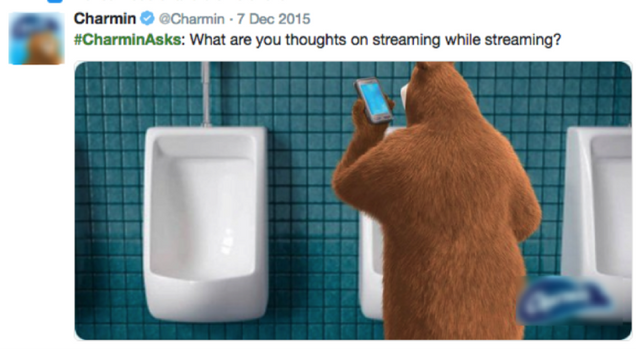5 Psychological Triggers That Lead to Effective Content Campaigns

You probably know about some of the psychological triggers marketers use to drive sales, like scarcity, urgency, and novelty.
While these tactics are effective, they don’t always apply when developing content campaigns.
Yes, you want to drive sales – but first, you need to create a relationship with your audience through content. So what psychological triggers do you use instead?
Here are five psychological triggers that can help you run an effective content campaign:
- Authority
People today turn to the internet to explore their interests and get answers to questions. And they have a lot of options on where to get their information.
As a brand trying to provide the content consumers are looking for, it’s important to demonstrate why they should listen to you and not your competitors.
That’s where authority comes in as a psychological principle. Marketers use it all the time to sell products and services, and it’s just as relevant to content campaigns.
Just think of nutritional supplements that get endorsements from medical professionals or makeup brands that use celebrities in their commercials. These are subtle ways that brands convey authority in their marketing messages.
Conveying authority in your content campaign consists of a variety of methods that demonstrate that you’re knowledgeable in your industry. Here are just a few examples:
Creating Data-Backed Content

What people find on your blog can convey a sense of authority if they can see you did your research.
Instead of just explaining concepts and best practices in your industry, make an effort to illustrate them with your content and back them up with data.
Guest Blogging on High-Authority Industry Sites

If other high-authority figures in your industry allow you to guest post on their platforms, this will serve as a secondary endorsement to demonstrate your expertise as well.
Conducting Industry Research

Even better than citing research in your content is conducting your own. This also makes it more likely your original content will be cited by others in the industry, making your brand look like a leading expert.
Neil Patel is probably one of the best examples of injecting authority into his content. He always provides data-driven content (and sometimes includes this fact in even the headlines) as well as creating his own case studies to draw from. Here’s one of his headlines:
Creating a Whitepaper or Ebook
Whitepapers, by definition, are short guides on a topic written by experts, so they can be a great asset to your content arsenal to convey authority.
E-books are another good content type to test, as it’s difficult to convey an exhaustive understanding of a topic with a series of blog posts. An e-book is a comprehensive solution that shows you know what you’re talking about.
Participating in Industry Events
Participating in, sponsoring, or even hosting an industry event can be a major authority boost. Events don’t even need to be hosted in person – they can be as simple as a planned webinar or even a Twitter chat.
Winning Industry Awards
Industry awards are just another form of high-authority endorsements, but they don’t just fall in your lap.
Actively seek out and apply for awards in your industry that you qualify for. If you do win – or even just get nominated – you can feature that on your website.
Getting Referenced in the Media
Media references outside of the blogosphere are another great show of authority that you can highlight on your website. Some sites even have a “news mentions” section.
And it’s not too difficult to become a featured expert in the media. Sign up for Help a Reporter Out (HARO), where journalists are actively seeking quotes and material from experts for their stories. Respond to queries related to your industry.
- Relatability
Content campaigns are an opportunity to build relationships with your audience, and one of the psychological triggers you can take advantage of in this effort is relatability.
People like to associate with individuals and businesses that they have something in common with. So when developing content, make an effort to put a face to your business name in these ways.
On Your Website
Your company’s About page is a great opportunity to demonstrate relatability. Describe your business’s humble beginnings, and highlight aspects that your audience might have in common with you and your team, such as shared goals and ideology.
On Social Media
Visual social content provides another great opportunity to be relatable.
On Instagram, photos with faces get 38% more likes. Research Buffer conducted on their social campaign found original, behind-the-scenes photos of their team got the most engagement.
Take advantage of this method by sharing photos and posts about your team members in the work environment, on retreats, etc. Show your audience what it’s like to be a member of the company.
- Telling Emotional Stories
Research has shown that 95% of all cognition occurs in the subconscious mind. It’s pretty amazing the impact emotional stories have on how much we value things without really even thinking about it.
That’s why a rare tin can from 1815 can sell for hundreds of dollars. Because we know tin cans were invented in 1810.
Or someone will spend millions to preserve a condemned home – because their great-great-aunt had it in the family for generations.
You can take advantage of this same effect in your content by telling emotional stories. Wharton researched the emotions conveyed by content that goes viral, and found three main ones:
Positivity
Awe
Anger, fear, and anxiety
You can inject these emotions into your storytelling by:
Sharing heartwarming success stories
Being a bit of a comedian
Sharing surprising news about your industry
Covering some mildly controversial topics
Highlighting your audience’s’ pain points (and addressing them)
Some brands are great at injecting emotions into their content all the time, especially on social media. Just check out the #CharminAsks hashtag on Twitter, where the brand asks some hilariously uncomfortable questions about bathroom use:
Content like this will be much more memorable and have more reach than content that just helps and informs without making people feel anything.
- Creating an In-Crowd
Dr. Mark Landau and other psychologists argue that humans have a basic need for coherence. Politicians and marketers alike encourage coherence, and in turn, loyalty, by highlighting a common enemy with their audience.
Instead of illustrating who you as a brand are, focus on who you don’t want to be. The whole “Mac vs PC” campaign (young, creative people versus corporate drones) is a common example of this, but identifying a common enemy doesn’t have to be so blatant.
The now-famous #LikeAGirl campaign by the brand Always, for example, highlights a common enemy – people who think “girl activities” are negative or weak, or who make other gender-specific assumptions.
Suddenly, Always has a connection with people beyond their products. They’re comrades in the fight against gender stereotypes.
Finding a common enemy that resonates with your audience will require taking a hard look at their personal values:
What popular issues are important to them?
What kind of personality traits, characteristics, or behaviors make them anxious?
Who do they not want to be?
- Reciprocity
Emotions that make your content memorable and encourage sharing can make for an effective content campaign, but your ultimate goal is still to get them to convert from leads to prospects to sales.
One powerful emotion that can begin moving your audience down the sales funnel is reciprocity. This psychological trigger is so ingrained that it’s the basis for most of human cooperation. All of us go around providing goods and services for others with the expectation that we’ll get something in return.
So how can you incorporate this psychological trigger into your content?
Carrot content.
Offer something of value (like a free e-book, helpful template, or another useful resource) as a part of your content campaign, in order to get contact information and move people from leads to prospects.
On my website, for example, we have carrot content right on our home page: a free analysis that helps us find prospects.
Many marketers use the same trick to turn those prospects into sales as well, with something like a special discount or free trial.
You have to give to get, and the concept of reciprocity can encourage the kind of consumer behaviors that result in conversions.
Know any other psychological triggers to improve content campaigns? I’d love to hear about them in the comments below.
Originally published on Search Engine Journal.
Aaron Agius is the Co-Founder and Managing Director of Louder.Online, a digital marketing consultancy that specialises in Intelligent & Effective Search, Content & Social Marketing. His expertise and efforts were also recognised and featured by The Huffington Post, Forbes, HubSpot, Inc., Content Marketing Institute, Entrepreneur and the Sydney Morning Herald. With over ten years of experience in business management, he is regularly invited to speak at various digital marketing and networking events.

